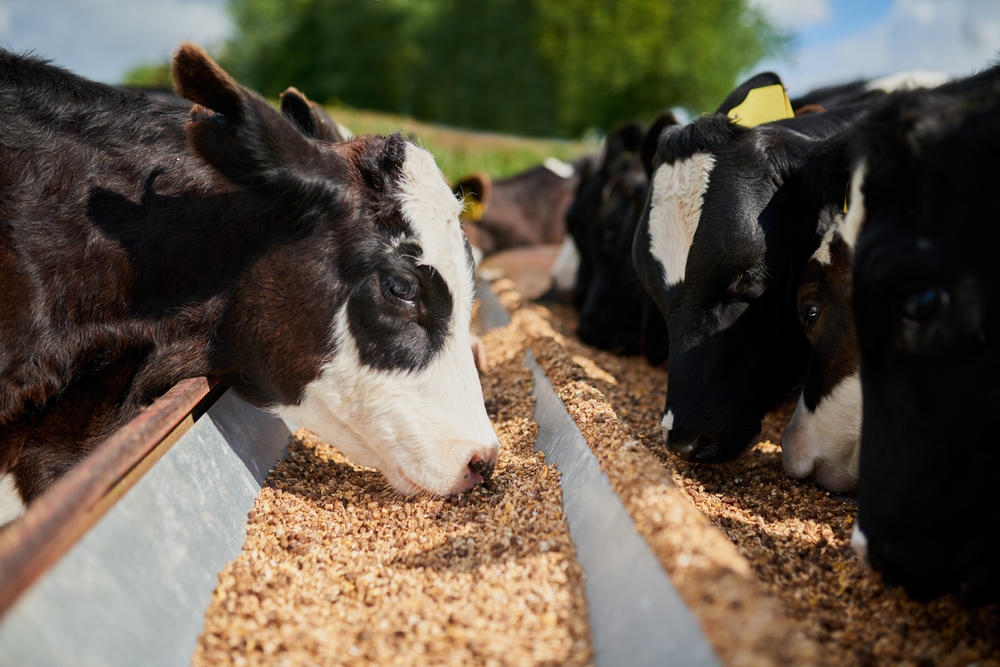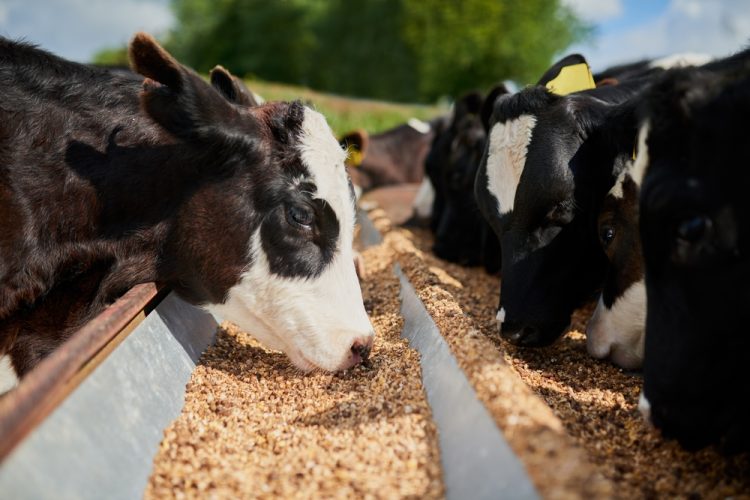Arla partners with retailers to tackle methane emissions from dairy cows

Arla Foods partners with Morrisons, Tesco, and Aldi to trial Bovaer® feed additive, aiming to reduce methane emissions in dairy farming.


Arla Foods have joined forces with Morrisons, Aldi and Tesco to tackle methane emissions. The collaborative project will bring together stakeholders across the food industry to trial Bovaer®, a feed additive shown to reduce enteric methane emissions from cows by an average of 27 percent, in a bid to make the dairy industry more sustainable.
The new trial, part of Arla’s FarmAhead™ Customer Partnership initiative, involves around 30 of its farmer owners and seeks to investigate how feed additives like Bovaer® can be incorporated into everyday feeding routines and expanded for wider industry use.
“We know that reducing methane is a big opportunity when it comes to improving our carbon footprint at farm level and feed additives like Bovaer® have huge potential in helping us tackle this issue,” Paul Dover, UK Agricultural Director at Arla Foods, commented.
“Bringing partners together from across the food & grocery industry in this kind of initiative highlights the support there is for British farmers in transitioning to more sustainable farming methods.
However, he admitted rolling them out at scale would not be easy due to the cost involved.
The trial seeks to provide practical insights into scaling the use of feed additives, assessing their impact on farm operations and fostering closer collaboration with the feed industry.
In a joint statement, Morrisons, Aldi, and Tesco said: “Through collaboration as part of Arla’s FarmAhead™ Customer Partnership, we have the ability to address some of the climate challenges facing our food system. It is this collective approach that is really going to make a difference. Being involved in using a feed additive is a great way of testing out where we can drive change at scale to bring down emissions.”
Accelerating the transition to more sustainable dairy farming
For farmers like Andrew Barraclough, an Arla member participating in the trial, the initiative represents a vital step towards sustainability.
“Working on initiatives that help reduce our impact on the environment is something that I am extremely passionate about,” he said.
Barraclough noted that while feed additives show significant promise, their high-cost poses challenges for widespread adoption.
He added, “Farmers are trying to accelerate the transition to more sustainable dairy farming, but we can’t do it alone. It’s why collective initiatives like this between Arla and its customers are so important for farmers – we need the wider industry to come together and support us if we are going to drive change.”
The project supports Arla’s goal of reducing supply chain emissions (scope 3) by 30 percent by 2030, serving as a vital step towards this target and providing a blueprint for decarbonising the dairy industry.
Source: newfoodmagazine.com

